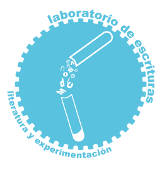Entrevista Jörg Piringer
Autor: Felipe Cussen
“It makes me feel like a human being”. Interview with Jörg Piringer1
Author: Felipe Cussen2
Jörg Piringer is one of the most active visual/sound/digital poets nowadays. His work is usually very clean and direct. My questions in this interview were longer than his answers.
I first wanted to asked you how and from where did you got into writing or producing poetry. Did you started writing confessional poems as any adolescent or playing with the sounds of words or typing in a computer?
i really started writing poetry when i was 17. very bad poetry of course. when i got my first soundcard (Soundblaster AWE 32) with an onboard sampler i started creating music and soundpoems with it. i must have been around 22 then.
Your artistic production is really diverse, from coded poetry and sound poetry performances to videos, installations, and even apps for iphones, but most of it includes text in some way. How do you think that those texts are (and viewed, heard, touched, etc.) depending the different traditions (literature, music, visual arts, new media) and forms (books, cds, galleries,internet) in which they circulate?
i more and more decide not care anymore about reception. though i have to admit i sometimes affects me that people STILL love to think in those boxes. i don’t think i have a good answer for this.
There are a couple of statements about your own sound poetry that I likevery much. About Vókal you say it is «sixty minutes of pure language that doesn’t sound like language», and about your piece «En Do» (included in an special issue of Leonardo Music Journal: The Word: Voice, Language and Technology) you say: «My piece en do can be seen as a lot of things: as music, as sound art, but for me is mainly poetry. When I speak of en do as poetry I think of an art manifest through language and voice. I thing of poetry without publishers and the necessity of meaning—a poetry without books and alphabets. A body poetry. A poetry of information systems». Those declarations were made almost ten years ago, and I’d like to know what you think about them now, and in which way your new works correspond or not to those views.
i think i moved away a little bit of the statement about vokal though it’s sometimes still true in my work but it’s no longer programmatic to my work. the second statement about en do is maybe more accurate for the work i do now. it’s always about text, body and information (systems).
I would also like to know about the live performance of your visual and sound poetry. What are the differences between your published or exposed work and the possibility of make variations, or add random elements, or make changes on the fly according to the specific moment of the performance?
i generally stopped trying to reproduce my published work on stage. i see them as two different art forms. i try to be as flexible and open on stage as possible. so there’s a lot of randomness or interaction between me and the computer. i love to surprise myself on stage. i don’t want that necessarily in a published artwork or poem.
Some of your most recent works are not «poems» but applications for iPhone or iPad. Is it too diferent to conceive and develop them comparing with your other works?
there’s much more work involved to produce a quality app for iPhone or iPad than a simple video or even a (visual) poem for the printed page. also there’s always the need for testing and correcting bugs in an app. so the development never stops. i still update my apps from 2010 from time to time while i almost never correct any published video for example.
Finally, I’d like to know what are your current projects, and also, how do you visualize the connection between experimental poets from different countries in festivals or magazines such as Huellkurven, in which you participate.
i am currently working on various project. one is the attempt to create a new kind of digital book. an e-book that is really taking advantage of all the possibilities interactive technology offers and not only take advantage of the users. the other project i want to finish soon is a new record or album. soon more about that. for me the international exchange is what poetry and especially sound and experimental poetry is about. i love to go to festivals, talk to people, collaborate with them, talk about art, poetry and nonsense. it makes me feel like a human being. that sounds kitschy but it’s true.
Notas:
1 This interview is part of the Research Project Fondecyt #1131136 “Samples y loops en la poesía contemporánea”.
2 Felipe Cussen holds a PhD in Humanities at Universitat Pompeu Fabra (Barcelona, Spain), and teaches at Instituto de Estudios Avanzados, Universidad de Santiago de Chile. His main fields of research are experimental literature and mysticism. He is also part of the experimental poetry group «Foro de Escritores», and collaborates regularly with the electronic musician Ricardo Luna. He just published the ep “quick faith”.



